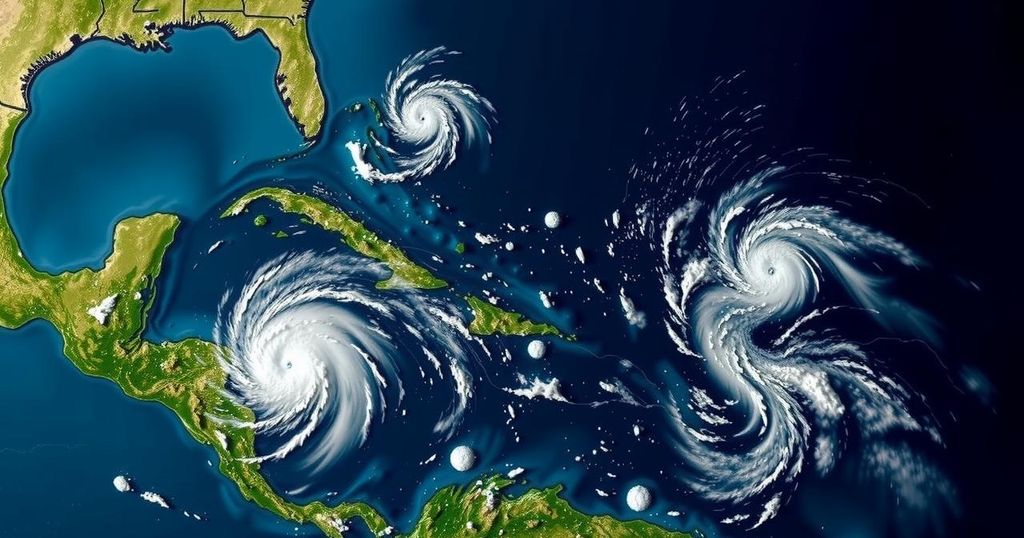The 2024 Atlantic hurricane season witnessed an extraordinary total of 18 named storms—including 11 hurricanes, five classified as major storms—culminating in record-breaking events, including the earliest Category 5 hurricane and three simultaneous hurricanes in October. The storms brought devastating impacts, particularly with Hurricanes Helene and Milton causing significant damage and fatalities, underlining concerns about the increasing intensity of hurricane seasons due to climatic shifts.
The close of the 2024 Atlantic hurricane season revealed an unprecedented series of storms, marked by record-breaking occurrences not anticipated by forecasters. The National Oceanic and Atmospheric Administration (NOAA) reported that 18 named storms formed—11 of which became hurricanes, including five classified as major storms of Category 3 or higher. This greatly exceeded the average of 14 named storms, seven hurricanes, and three major hurricanes seen in a typical season.
Hurricane Beryl made headlines as the earliest Category 5 hurricane on record, impacting Texas and Louisiana with significant flooding and storm surges. Hurricane Helene, which struck the Florida coast at Category 4 strength, was not only one of the deadliest hurricanes since Hurricane Katrina in 2005, but also marked a historic predictive achievement for the National Hurricane Center, forecasting a major hurricane before the cyclone had developed from a tropical depression.
Hurricane Milton garnered attention for its extraordinary rapid intensification, increasing winds by an astonishing 90 mph within 24 hours, ultimately achieving Category 5 status before landfall in Siesta Key, Florida. Moreover, the occurrence of three simultaneous hurricanes—Milton, Kirk, and Leslie—in October set another record, highlighting the unusual activity during this season.
Lastly, Hurricane Rafael, although not particularly powerful, became a notable late-season storm, marking only the fifth hurricane recorded in the Gulf of Mexico during November since 1980. This season concluded with a historic number of storms developing post-September 25, with seven hurricanes occurring after this date, also recorded as a first for the Atlantic basin.
The 2024 Atlantic hurricane season not only exceeded prior expectations but reshaped historical records, reinforcing concerns about the increasing severity and frequency of hurricanes fueled by changing climatic conditions.
The preparations and resilience of affected communities will continue to be crucial as the implications of this season weigh heavily on future hurricane forecasting and disaster response strategies.
The Atlantic hurricane season runs from June 1 to November 30, with activity often peaking in September. This season was distinguished by several factors, primarily unusually warm sea-surface temperatures and the absence of El Niño conditions, which historically have moderated storm activity. Scientific evaluations suggest that climatic changes may underlie the escalating intensity and frequency of hurricanes, prompting concerns among meteorologists and disaster management agencies regarding preparedness and response.
In summary, the 2024 Atlantic hurricane season marked a significant chapter in meteorological history, with an unprecedented number of storms and notable instances of rapid intensification and landfall impact. Hurricanes Beryl, Helene, Milton, and Rafael exemplified the extreme conditions this season, asserting the necessity for enhanced forecasting capabilities and robust disaster preparedness measures in the face of evolving climatic challenges.
Original Source: www.theadvocate.com






